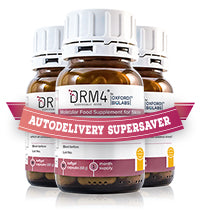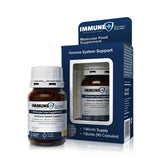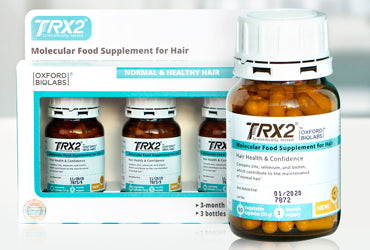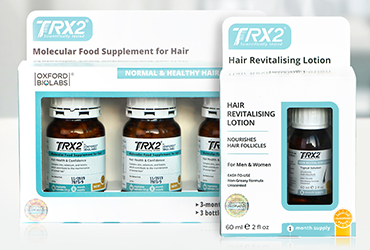Modern health seekers are finally starting to make the connection between gut health and overall health and wellbeing. Information on the immune system in the gut is coming to the forefront in health research, and that can only be a good thing. Now that we are in a position to understand how the gut influences health, we can easily learn how to support the immune system.
There is still more work to be done in understanding gut health, but science is making headway. The discovery that gut microbiome plays a major role in good health was groundbreaking, and if you work to keep this flourishing, you will reap the benefits of looking after the gut. Data has shown that gut microbes work together to optimise immunity, and when something isn’t right, they let your body know about it. This is when you are likely to notice your body getting sick, which is a warning you should take seriously.
This article covers how your immune system works, the function of your microbiome, and how to ensure healthy gut flora at all times.
How does the immune system in the gut work?
There are actually four parts to the overall immune system: your organs (which carry white blood cells), your lymphatic system (which circulates those cells), your antigens and antibodies (which tackle viruses) and your gut flora.
Approximately 70 to 80% of your immune system is in your gut, which plays a major role in how we feel, on all levels: physically, mentally, and emotionally. In fact, as research has shown, when your gut flora is out of balance, you are more likely to develop depression and mood disorders.
You may have heard of the terms ‘microbiota’ and ‘gut flora’, when learning about how the gut works. These terms are generally interchangeable and are referring to the microorganisms that live in your gut. Specifically, these include bacteria, archaea and microscopic eukaryotes, and they exist in your digestive tract.
Furthermore, the gut houses immunity-associated cells called gastric mucosal epithelial cells. These are one of the first lines of defense in gut immunity.
What does gut microbiome do?
The array of ‘friendly bacteria’ in your gut has several roles.
- It breaks down your food
- It sends signals of danger to your immune system
- It collaborates with the overall immune system to defend your body
Your immune system is there to defend your body from all kinds of threats, from environmental toxins to dangerous bacteria. It works hard - every hour of every day - and in many people, it has a big job to do. Unless you know all there is to know about health, the chances are you are unknowingly introducing at least a few challengers to your body, regularly.
When that happens, your gut microbiome sends the signal to the other parts of your immune system, which start the process of removing invaders from your body. When there are too many invaders for it to cope with easily, you may start to notice symptoms of illness. Conversely, when it is keeping on top of the situation, your body is in balance. Another word for this bodily balance is ‘homeostasis’. It means that everything is regulated properly, and functioning as it should be.
How do you know if your gut flora is balanced?
The ideal ratio of gut flora is likely to vary from person to person, according to studies in this area. There is no exact amount that constitutes optimal gut flora, but you will have an idea of how balanced yours is because of the way you feel. If you are experiencing any of the below symptoms of poor gut health, it is likely that you need to bring it back into balance:
- Digestive discomfort
- Unusual weight gain
- Constant fatigue
- Food intolerances
- Mood swings
- Skin conditions (linked to inflammation in the gut)
There are many things that damage your gut flora, leading to imbalance. These include (but are not limited to):
- Excessive sugar intake
- Smoking
- Taking antibiotics (which kill the good bacteria, allowing the bad bacteria to thrive)
- Vitamin D deficiency
- A diet high in processed foods
- Foods containing gluten
- Stress and anxiety
- Red meat, dairy and eggs
- Farmed fish (which contains antibiotics and other additives)
- Genetically modified foods (GMOs)
- Pesticides on inorganic foods – particularly glyphosate
- Tap water (which contains a range of chemicals)
- Artificial sweeteners
Ways to improve your gut health
If you suspect that your gut microbiome might be off, there are several things you can do to improve it. Aside from staying away from the above list of substances that damage the gut, among the best options for re-establishing good bacteria in the gut are:
- Eat more foods containing gut-friendly prebiotic fibre
- Eat foods containing inulin (a prebiotic fibre), such as asparagus, garlic, onions, artichoke and chicory root. Dandelion extract supplements contain this too
- Eat more fermented foods – ideally, learn how to ferment your own – such as kimchi, sauerkraut, tempeh, miso and kombucha
- Stick with organic foods only, to avoid pesticides and GMOs
- Get plenty of sunshine, or supplement Vitamin D3
- Take a good probiotic supplement, ideally with prebiotics added, and containing at least 60 billion CFU (colony-forming units)
For an all-round immune boost, why not try Oxford Biolabs® Molecular Food Supplement IMMUNE+? This holistically formulated, innovative supplement was designed to support your immune system, no matter the time of year, and particularly during the cold and flu season.
It contains many important vitamins and with immune system-supporting capabilities, including European black elderberry extract, yeast β-glucans, zinc, vitamins C, D and B12. This powerful formula will contribute to the normal functioning of your immune system, giving you the strength and vitality you need each day.
Of course, anyone with serious or persistent gut-related illness should consult a qualified healthcare practitioner. You may need to make several changes to your diet and lifestyle, which may be best supported by an experienced professional.


























